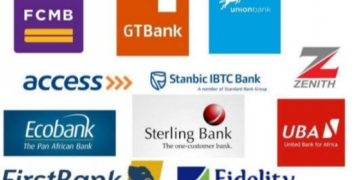The tech landscape in Africa is booming, with talent and innovation driving rapid growth. But amidst this exciting progress, a crucial element often gets sidelined: accessibility. A leading tech expert has issued a powerful call to action, urging African software engineers to prioritise web accessibility and inclusivity in their designs and code. Across the vibrant tech hubs of Africa, a new generation of software engineers is emerging. Armed with talent, ambition, and a unique understanding of their continent’s needs, they hold the potential to revolutionise not just their economies but the entire digital landscape.
However, a leading tech expert, Oluwaseyi Oluwadare, believes their focus should go beyond building the next viral app or groundbreaking fintech solution. Oluwaseyi makes this remark at the Global Accessibility Awareness Day on Thursday, the 19th of May, 2022. A day dedicated globally to getting global and industry leaders talking, thinking, and learning about digital access and inclusion.
“Africa presents a unique challenge and opportunity,” says Oluwaseyi, a renowned frontend expert and advocate for digital equity. “The continent boasts a young, tech-savvy population eager to connect, but faces hurdles like limited infrastructure, diverse disabilities, and language barriers.”
Mr Oluwaseyi believes that African software engineers have a crucial role in bridging this digital divide, not just by building products but with everyone in mind.
According to the World Bank, over 275 million people in Africa live with disabilities. Yet, many websites and apps built on the continent remain inaccessible, creating a significant digital divide. This not only limits the participation of individuals with disabilities but also hinders overall innovation and growth.
This call to action stems from several factors. Firstly, Africa’s digital landscape is rapidly evolving. Mobile phone penetration is soaring, and internet access, while still lagging, is expanding rapidly. This presents a massive potential user base only if the technology caters to their diverse needs.
Secondly, Africa’s population is incredibly diverse in terms of ability. Visual impairments, hearing loss, and motor limitations are prevalent, yet many digital tools remain inaccessible. By prioritising accessibility from the outset, African engineers can create a more inclusive tech ecosystem that benefits everyone.
Finally, language plays a vital role. Africa boasts over 2,000 languages, with many lacking digital representation. By incorporating multilingual options and fostering local language content creation, software engineers can ensure that technology truly serves the diverse communities they live in.
Mr Oluwaseyi acknowledges the challenges. “Building accessible and inclusive technology requires additional resources and expertise,” he says.
“However, the rewards are immense. Not only will it unlock the full potential of Africa’s digital market, but it will also set a global precedent for ethical and responsible tech development.”
So, what can African software engineers do? The answer lies in a shift in mindset. Integrating accessibility features from the design stage should become standard practice, not an afterthought. Collaborating with disability rights groups and local communities is crucial for understanding diverse needs.
Additionally, promoting open-source solutions and fostering a knowledge-sharing culture can accelerate progress across the continent.
The journey towards an inclusive digital Africa is long, but the potential is undeniable. By prioritising accessibility and inclusivity, African software engineers can build their success stories and pave the way for a more equitable and connected future for all.
The call for inclusivity extends beyond technical solutions. Oluwaseyi advocates for creating a more diverse and inclusive tech ecosystem in Africa. This includes promoting mentorship and training programs for individuals with disabilities who aspire to careers in tech, Encouraging investment in assistive technologies and infrastructure to support accessibility and Advocating for policies that promote inclusive technology development and use.
By prioritising accessibility and inclusivity, African software engineers can contribute to building a more equitable and prosperous digital future for the continent. Their efforts can inspire other regions and set a global example for inclusive technology development. This is not just a technical challenge but an opportunity to create a more just and prosperous world, one line of code at a time.




